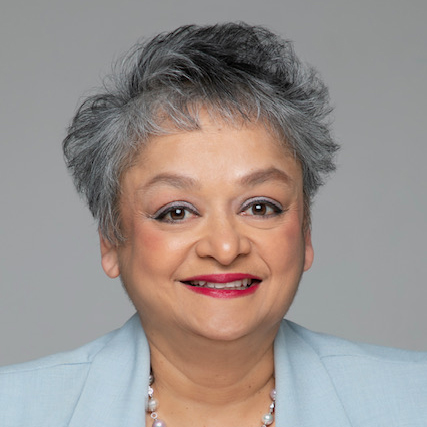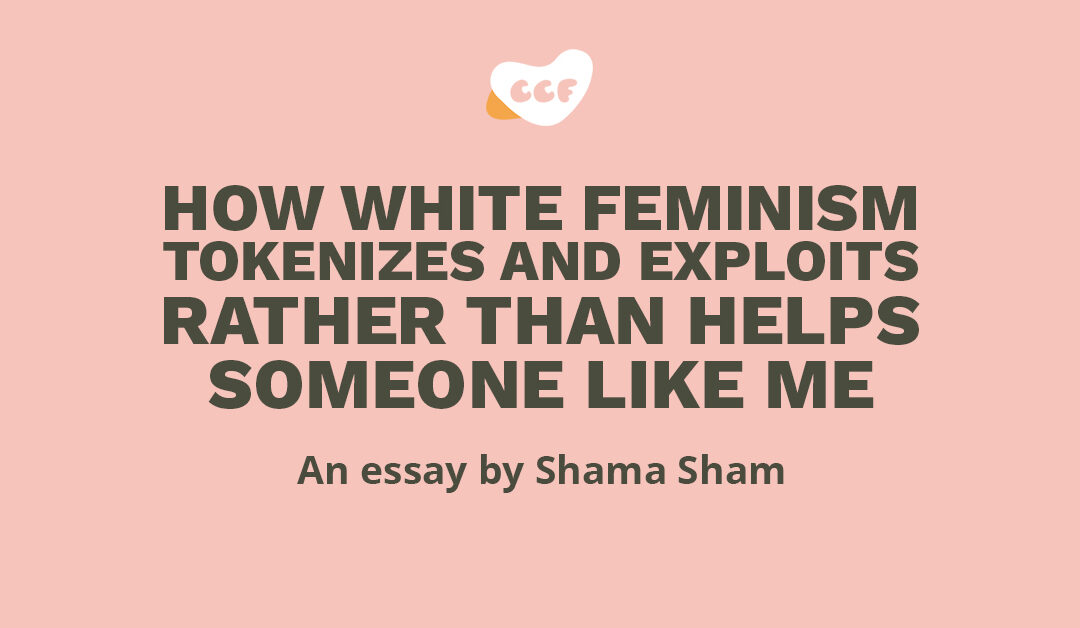By Shama Shams, survivor and advocate
As a child, the concept of racism eluded me despite it being ever present in my life.
Growing up Bangladeshi in Memphis during the late 1970s, being stared at was routine, especially when my mother, adorned in a sari with her head veiled, accompanied us. Our modest two-bedroom apartment perpetually exuded the aroma of curry and chai, a beacon guiding me back from afar.
My father, deeply enamored with America, recited patriotic phrases fervently, fostering in me the belief in the American dream—where education opened doors to boundless possibilities. Yet, irony shrouded his aspirations; his skin color and accent barred him from reaping the fruits of those opportunities.
Initially, my optimism about equal opportunity remained unwavering despite my family’s struggles. However, as time progressed, my disillusionment grew. Despite my father’s two master’s degrees from American universities, suitable employment remained elusive. My well-educated father toiled bagging groceries, ferrying bags to cars, earning him a few coins from appreciative customers while the more generous ones handed him a dollar.
Shortly after the Iran hostage crisis ended, my father died of a sudden heart attack. My sisters and I got low-paying service jobs to help pay family bills, and our financial woes continued well past our college years. I knew how to get food stamps and what time of the day to stand in line for free food, clothing, and other essentials.
These days, my sisters and I are financially stable and, in many ways, living the American dream. But receiving the same opportunities as our white counterparts is far from our reality.
My lived experience made me both desirable and exploitable to the white women who lead the nonprofit sector
Women of color are frequently left feeling tokenized and re-exploited, especially when lived experience is added to the hiring criteria. As a survivor of sexual exploitation, my experience and my “relatability” to other victims and survivors of exploitation have benefited my white female counterparts in their pursuit to “rescue” us.
In the nonprofit sector, we talk about diversity all the time, yet white women lead many of the nonprofits I have worked with.
Women of color are frequently left feeling tokenized and re-exploited, especially when lived experience is added to the hiring criteria. As a survivor of sexual exploitation, my experience and my “relatability” to other victims and survivors of exploitation have benefited my white female counterparts in their pursuit to “rescue” us.
In my experience, employers have enlightened conversations surrounding diversity, equality, and inclusion, but they are often just conversations without substance. White women claiming to prevent the exploitation and marginalization of women of color are often the ones holding the gavel. These white women, who usually are outraged by white men’s power, fail to recognize their power over their counterparts of color, who are at the bottom of the hierarchy.
Last year, I sat at a round table with a group of ladies at a women’s conference. I was the only person of color at my table. The woman beside me was angry that a man several tables away stood up and spoke for a long time. She felt it was outrageous that this man dominated the conversation at a women’s conference.
At one point, each table was asked to engage in a discussion on a given topic. The women at my table took turns speaking, but it never occurred to them that I did not get the opportunity to talk before the time ran out.
Some women often get so caught up in voicing the injustice they experience that they do not recognize the injustice that they cause their sisters of color or people from other marginalized genders. This highlights an essential aspect of social activism and advocacy, particularly within feminist movements: the potential for certain groups to perpetuate injustices against others inadvertently.
While feminism aims to address and dismantle systems of oppression based on gender, it’s crucial to recognize that women’s experiences are intersectional and influenced by various factors such as race, class, ethnicity, sexuality, and more.
The importance of rejecting white feminism for intersectional feminism
Current research in the field of intersectional feminism sheds light on how some women, particularly those from dominant racial or ethnic groups, may prioritize their own experiences and perspectives while overlooking or even contributing to the marginalization of women of color. This phenomenon is often referred to as “white feminism,” where the concerns and struggles of white women take precedence over those of women of color within feminist discourse and activism.
A study by Kimberlé Crenshaw, a pioneering figure in intersectional theory, emphasizes the importance of recognizing and addressing intersecting forms of oppression. Crenshaw’s work illustrates how the experiences of women of color are often marginalized or erased within feminist movements that prioritize the concerns of white women. Her research underscores the need for a more inclusive and intersectional approach to feminism that acknowledges the diverse experiences and challenges faced by women from different racial, ethnic, and cultural backgrounds.
Furthermore, contemporary research by scholars like bell hooks, Audre Lorde, and Angela Davis delves into the complexities of intersectionality and how power dynamics within feminist movements can produce inequalities. These scholars advocate for a more inclusive and anti-racist feminism that not only challenges patriarchy but also addresses racism, colonialism, and other forms of oppression that impact women differently based on their intersecting identities.
In addition to academic research, current events and social media discussions often highlight instances where mainstream feminist movements fail to adequately address the concerns of women of color or actively perpetuate racial injustices. For example, controversies surrounding the Women’s March movement have sparked debates about the exclusion of women of color from leadership positions and the prioritization of issues primarily affecting white women.
Overall, current research underscores the importance of recognizing and challenging how certain women may inadvertently perpetuate injustices against their sisters of color within feminist movements. By centering intersectionality and actively amplifying the voices and experiences of marginalized women, feminists can work towards a more inclusive and equitable movement for gender justice.
For me, sitting in silence with hope for justice to prevail is a thing of the past. I now wield a pen to express my disillusionment with the idea that the American Dream is within reach for everyone.

Shama Shams
Shama Shams, an author from Seattle with a master’s in religion from Florida State University, has garnered recognition for her memoir, She Called Me Throwaway.
In addition, with over two decades of dedicated service in the nonprofit sector, Shama is a seasoned executive passionate about driving positive social change and empowering homeless or impoverished individuals. As the founder and principal consultant of Case for Support Consulting, she brings a wealth of experience in strategic planning, fundraising, marketing, and communications to nonprofit organizations seeking to enhance their impact and sustainability.
Shama held key leadership positions in various nonprofits, including Chief Impact Officer, Director of Development, and Director of Philanthropy and Marketing. Her expertise lies in crafting compelling narratives, building strong brands, and developing strategic partnerships to advance the missions of the organizations she serves.
Follow Shama’s work at Case for Support Consulting or on LinkedIn.
Discover more from CCF
Subscribe to get the latest posts sent to your email.

